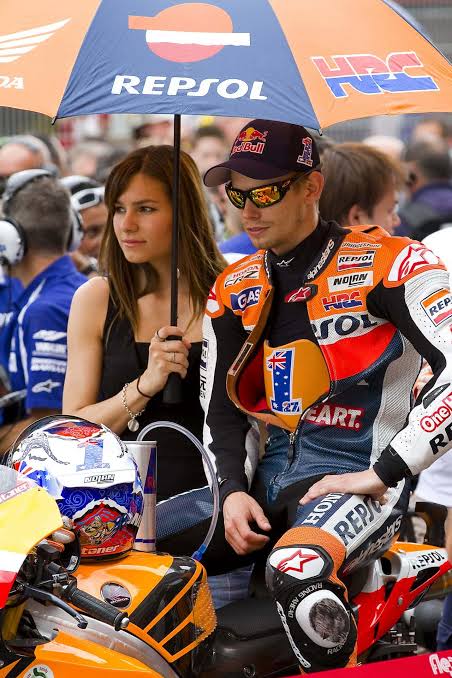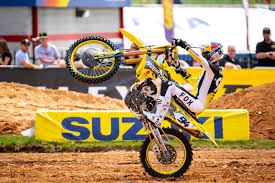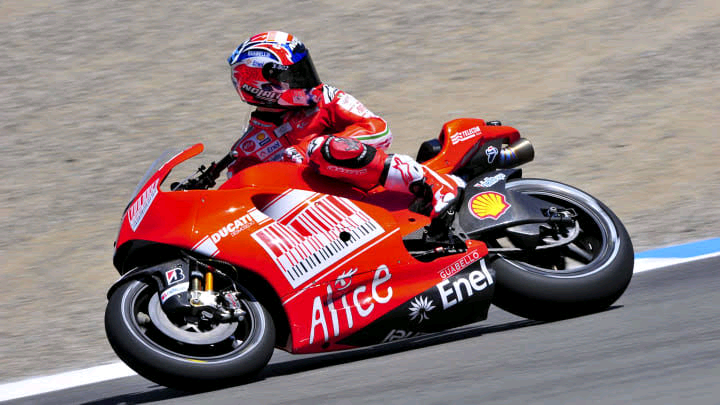**The Early Retirement of Casey Stoner: Unraveling the Factors Behind a Champion’s Sudden Farewell**
Casey Stoner, the Australian motorcycle racing legend, is widely regarded as one of the most talented and charismatic riders in the history of MotoGP. His career was marked by remarkable achievements, including two world championships (2007 and 2011), numerous race wins, and a reputation for raw speed and technical mastery. Yet, despite his success, Stoner made the surprising decision to retire from professional racing at the age of just 27 in 2012, a move that shocked fans and analysts alike. This article explores the multifaceted reasons behind Casey Stoner’s early retirement, examining the physical, mental, technical, and personal factors that contributed to his abrupt departure from the sport.

Physical and Health Challenges
One of the most significant reasons cited for Stoner’s early retirement was the toll that MotoGP took on his body. Throughout his career, Stoner struggled with persistent health issues, most notably with his eyesight and respiratory health.
– **Vision Problems:** Stoner suffered from severe astigmatism, which affected his vision and required him to wear specialized contact lenses or corrective glasses during races. The intense glare and high speeds exacerbated these issues, making it increasingly difficult for him to maintain optimal performance and safety.
– **Respiratory Issues:** In 2011, Stoner revealed that he had been diagnosed with a lung condition called *asthma*, which was aggravated by the physical demands of racing at high altitudes and in various atmospheric conditions. Managing this condition was a constant challenge, impacting his stamina and concentration during races.
– **Injuries and Physical Strain:** Like many top riders, Stoner endured injuries throughout his career, including wrist and shoulder problems. The physical strain of controlling powerful bikes at extreme speeds contributed to fatigue and discomfort.
These health challenges played a crucial role in his decision to step away from the sport, as the physical and mental toll became increasingly difficult to sustain at a top competitive level.
Mental and Emotional Factors
Beyond physical health, mental well-being was a significant factor influencing Stoner’s early retirement. The life of a professional motorcycle racer is intensely demanding, both physically and psychologically.
– **Burnout and Exhaustion:** After years of racing at the highest level, Stoner reportedly experienced burnout. The constant pressure to perform, the rigorous travel schedule, and the relentless media scrutiny contributed to emotional fatigue.
– **Disillusionment with the Sport:** Stoner was known for his candid and sometimes critical opinions on motorcycle racing. He expressed frustration with the evolving technical regulations, the dominance of certain manufacturers, and the increasing complexity of bike development. This disillusionment led to a sense of disconnect and diminished joy in racing.
– **Desire for Normalcy:** Stoner had spoken openly about his desire to lead a more normal life outside of the spotlight. The relentless cycle of training, testing, and racing left little room for personal pursuits or family life, which he valued highly.
Technical and Regulatory Changes
The evolution of MotoGP technology and regulations during Stoner’s career also influenced his decision. The sport was undergoing significant changes aimed at increasing safety, competitiveness, and entertainment value.
– **Complexity of Bikes:** The MotoGP bikes became increasingly sophisticated, requiring specialized knowledge and resources to develop and maintain. Stoner, who had a keen technical understanding, found the constant need to adapt and learn new systems taxing.
– **Regulatory Uncertainties:** Changes in rules regarding electronics, aerodynamics, and tire specifications created an environment of uncertainty. Some riders, including Stoner, felt that these changes affected the purity of racing and their ability to compete on equal footing.
– **Manufacturer Dynamics:** Stoner’s career was closely tied to Honda and later Ducati. Discontent with manufacturer support, bike performance issues, or perceived unfair advantages sometimes contributed to frustrations that impacted his mental state.
Personal Values and Future Aspirations
Stoner’s personal convictions and aspirations played a role in his early exit from racing.
– **Desire for a Different Life:** Having achieved significant success early, Stoner expressed a desire to pursue a quieter, more family-oriented life. He was known to value his privacy and personal relationships highly.
– **Interest in Other pursuits:** Post-retirement, Stoner pursued various interests, including coaching, motorcycle development, and personal projects. His decision to retire allowed him to explore these avenues without the constraints of professional racing.
The Timing and Final Decision
In 2012, after a challenging season marked by injuries and inconsistent performances, Stoner announced his retirement during the MotoGP season, citing ongoing health concerns and a desire to step away while still at the peak of his powers.
In his farewell interviews, he emphasized that his decision was driven by a combination of physical health issues, mental fatigue, and a wish to preserve his well-being. He expressed gratitude for his career and acknowledged that he felt it was the right time to retire before issues worsened.
Legacy and Impact
Casey Stoner’s early retirement was a poignant reminder of the intense physical and mental demands of professional motorcycle racing. While he left the sport prematurely, his legacy endures through his remarkable achievements, technical brilliance, and candid personality. His decision also sparked discussions within the racing community about rider health, safety, and the importance of mental well-being.
Casey Stoner’s retirement at the age of 27 was a complex interplay of health challenges, psychological factors, technical frustrations, and personal values. His choice to step away from the sport was driven by a desire to prioritize his health and happiness over continued competition. Despite his early exit, Stoner remains an influential figure in MotoGP history, admired for his talent, integrity, and the courage to make a difficult but necessary life decision. His story continues to inspire conversations about athlete well-being and the importance of listening to one’s body and mind amidst the pressures of elite sports.


